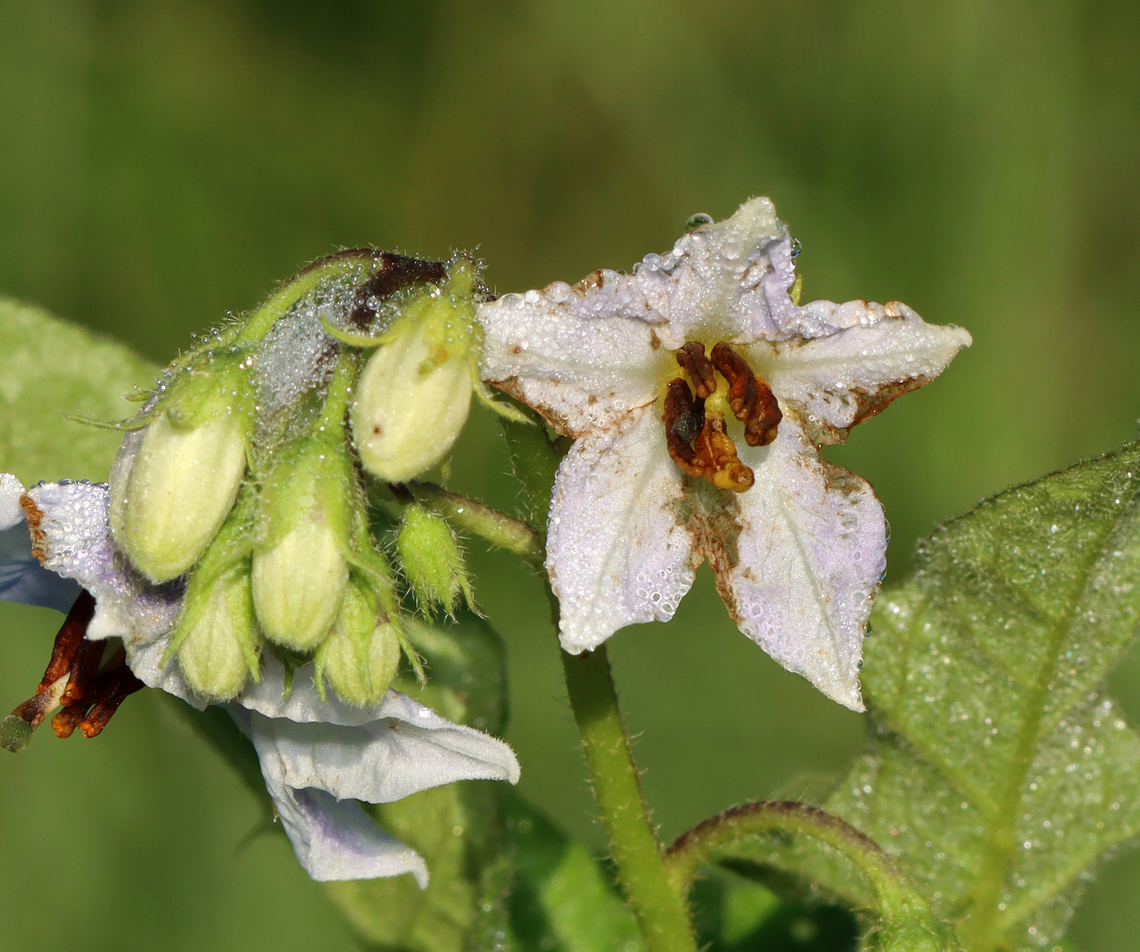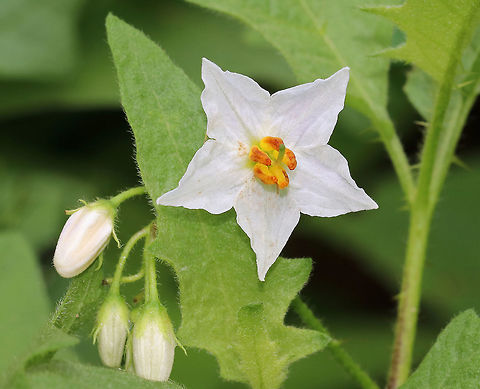
Carolina Horsenettle - Solanum carolinense
All parts of this plant are poisonous to varying degrees due to the presence of solanine, which is a toxic alkaloid. Ingesting any part of the plant can cause fever, headache, nausea, vomiting, and diarrhea. Even worse, eating the fruit can cause severe abdominal pain, circulatory and respiratory depression, and death.
Habitat: field/pasture

"Solanum carolinense", the Carolina horsenettle, is not a true nettle, but a member of the Solanaceae, or nightshade family. It is a perennial herbaceous plant, native to the southeastern United States that has spread widely throughout much of temperate North America.
